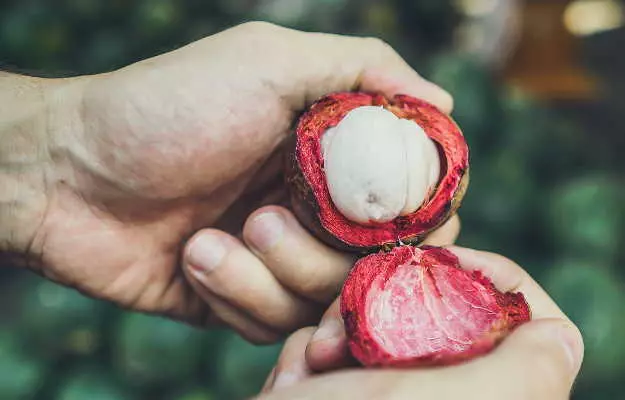Mangosteen (scientific name Garcinia mangostana) is a slow-growing tropical tree that is indigenous to the Malay Archipelago and grows well in South Asian and Southeast Asian countries including India, Malaysia, Sri Lanka, Myanmar, and the Philippines.
The tree bears purplish-red fruits with a soft aromatic white pulp that has a sweet flavour. Mangosteen fruit can be eaten raw but it is also frozen, sweetened to make jam or candy, canned, or made into a syrup. Due to its high nutritive value and unique taste, mangosteen is sometimes called the "queen of fruits".
The fruit has several benefits for health. It helps reduce inflammation, fights oxidative stress and is also known to have anti-cancer properties. However, excessive consumption of mangosteen may lead to reduced blood clotting.
































